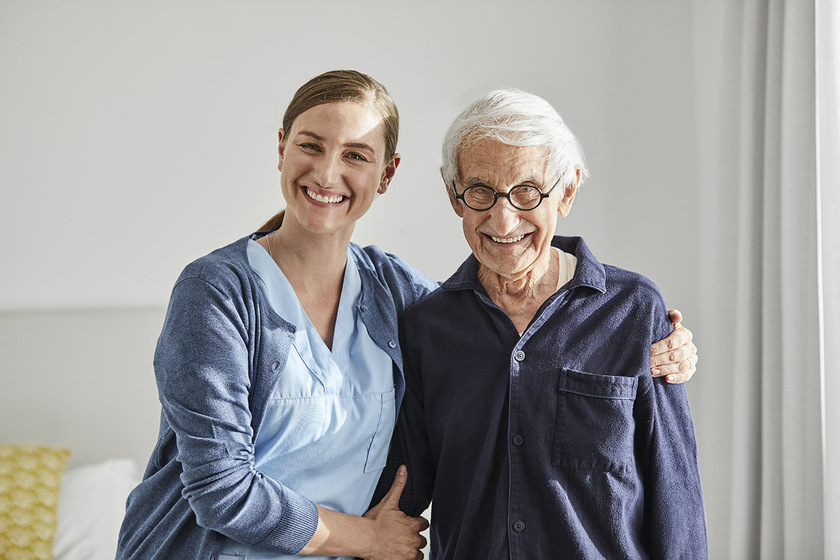As we age, everyday tasks can become more difficult. Seniors’ personal hygiene can be extremely hard to maintain due to a sheer lack of energy and mobility. Isolation, a fear of falling, depression, dementia or medication side effects can cause them to neglect their grooming and personal hygiene. Older adults also tend to feel stiffness and pain in the hands and other joints caused by arthritis.
Shaky hand tremors caused by Parkinson’s also make it difficult to clean themselves when using the toilet or bathing thoroughly. Recovering stroke patients may also limit the use of one of their feet or one of their hands making it difficult to clean themselves. Read on to know more about assisting with seniors’ personal hygiene.
Create a Routine
Establishing a hygiene routine can help your loved one get used to doing activities such as brushing their hair and teeth and showering. Make these activities part of their life by putting on their favorite music and laying out their clothes so they can change into a comfortable set of clothes right away. This is to avoid making these daily hygiene routines seem like a chore.
Identify the Reasons for Neglection
Understand why your loved one has neglected their personal hygiene. Older adults usually develop poor hygiene because of mobility issues and they are physically not able to execute their regular hygiene routines. Whatever the reasons, it is crucial to identify the reasons and discuss potential solutions to help them stay healthy and clean.
Make Sure the Bathroom Is Safe
Just the fear of slipping and falling can often be enough to prevent seniors from taking the bath or using the toilet altogether. Install the right equipment such as handrails near the toilet and shower. If possible, add a bench in the shower and install elevated toilet seats.
Hire Professional Support
A professional caregiver can assist and provide personal hygiene services for your loved ones. If you sense that your loved one has been avoiding asking you for help, hiring one for them might be a great option. They may feel more comfortable having a non-family member performing these tasks for them.
Resort to Purchasing Helpful Hygiene Aids
There are plenty of devices that are designed to solve elderly hygiene issues that make it easier for your loved one to take care of their own personal grooming. Some examples of hygiene aid equipment are no-rinse bathing wipes, long-handled shower brushes, toenail clippers, and shower chairs. All these could make taking care of personal hygiene easier and safer.
Helping an aging loved one with their personal hygiene is a labor of love, but it also can be stressful and tiring. Other personal hygiene routines that your loved one should partake in are regular visits to the dentist for cleaning and to prevent gum disease, and also regular visits to the eye doctor. You want to make sure that the eye doctor checks for vision problems such as macular degeneration, cataracts and other eye diseases.







